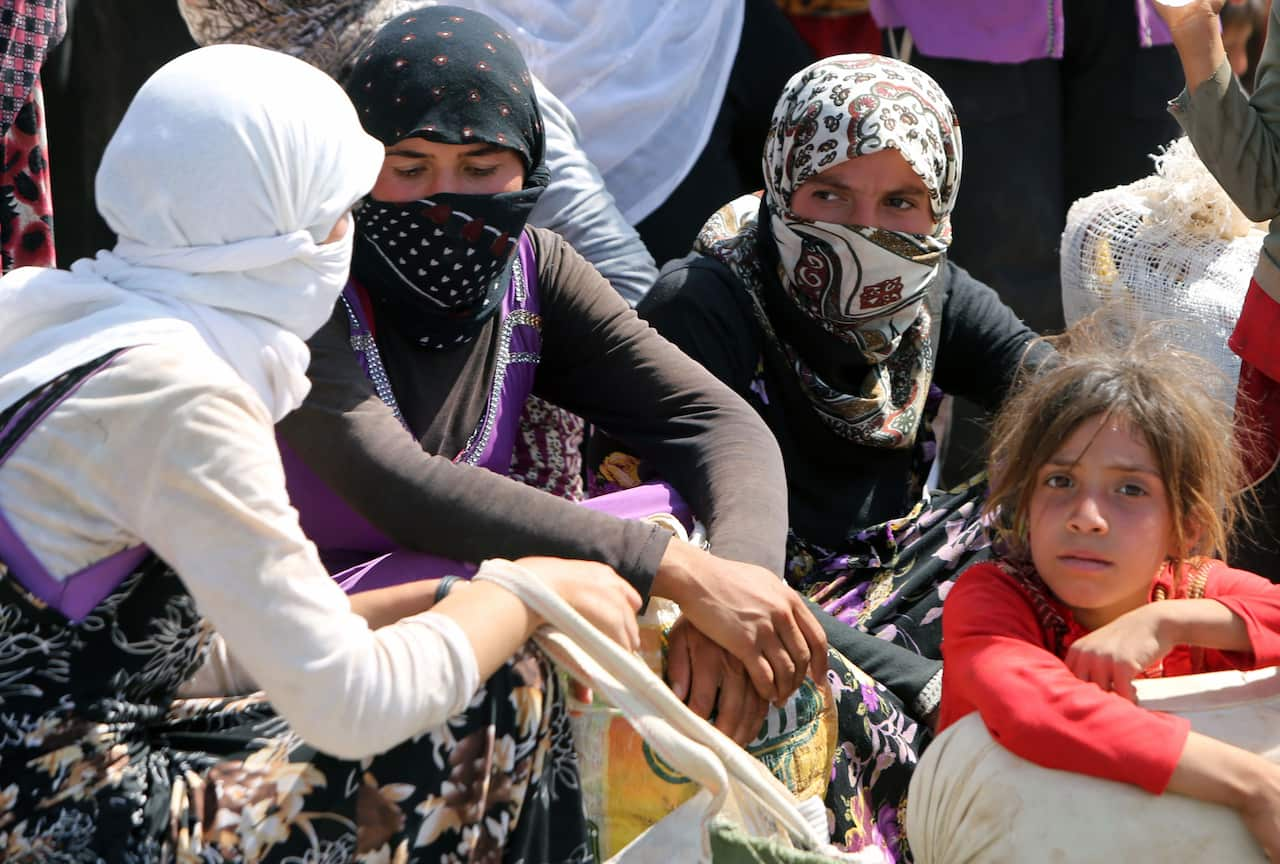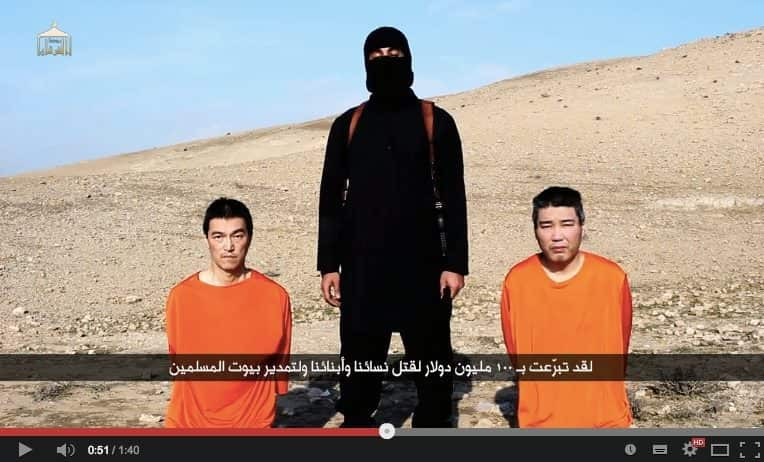Last week news outlets around the world reported that ISIS had burned 19 Yezidi girls to death in front of hundreds of people in Mosul, Iraq for refusing to serve as sex slaves.
From the Independent and the Mirror in the UK, to Fox News and the New York Post in the US, to the Daily Mail and the Australian here at home – the headlines proved irresistible. Even the New York Times reported the atrocity on its Women in the World blog.
One problem: the story is “most likely not true,” according to human rights investigator Christoph Wilcke.
Every report from the outlets above appears to be solely based on a very thin report published by ARA, a Kurdish news outlet.
In just four sentences on the incident, the story quotes a ‘local media activist’ and anonymous eyewitness.

Mr Wilcke, a senior Middle East researcher at Human Rights Watch in Munich, told The Feed that the story was “most likely not true.”
“I got in touch with Yezidi acquaintances who were able to call people in Mosul – none of whom had heard or seen of this event,” he said, “and the Yezidi sources mentioned that a similar allegation had been made already months ago.”
Mr Wilcke said his sources were well connected and were working to get Yezidi women out of ISIS controlled territory. They relied on their networks to provide reliable information, he said, and they decried fellow Yezidis who put rumours out as news in order to attract Western attention.
“As with much news out of Mosul, some of it may be true, but I wouldn’t trust the details unless more information is given,” Mr Wilcke said.
In the complex conflict, many have an interest in influencing the media. Kurdistan Democratic Party spokesperson Saeed Mamouzini frequently appears in the media discussing ISIS without much indication of who sources are, Wilcke said.
Mr Mamouzini appears as the primary or sole source of many dramatic ISIS stories, especially those relating to the persecution of women, children and Christian minorities. His claims have appeared repeatedly in Iran's state run Press TV and several Russian agencies with ties to the Kremlin - both countries have an interest in maintaining support for their military campaigns in the region.
Other thinly sourced ISIS stories frequently appear on right-wing blogs and other alternative media websites. On occasion those stories break through to mainstream Western media.
“That said, there often is some truth in those allegations, but numbers, locations, reasons may be slightly different,” Mr Wilke said. “ISIS of course also claims lots of things, especially combat deaths of enemies, that those people say is not true.”
An image circulating on social media showing children in a cage, apparently about to be burned alive by ISIS, is also not genuine.
SBS can confirm that the images, taken by a photographer for Reuters, actually show a February 2015 protest against Syrian President Bashar Al-Assad. Activists in Damascus were seeking to compare President Assad to ISIS.
The volume of reports is too much for investigators to chase down every story. Mr Wilke doesn’t necessarily blame the media for struggling.
“Fact checking reports from Mosul and Fallujah, the two main ISIS held cities in Iraq, is very difficult because ISIS has banned use of phones and internet,” he said, “so people put themselves at great risk by getting information out.”
When people in the area do get in touch, it's rarely a live conversation. Asking for corroborating details and evidence is difficult, and it’s nearly impossible to verify reports in real time.
“The back and forth may take days, leading to even more risk to the person sending information. That person may not be able to get out of the house to start asking other people what they saw,” Mr Wilke said.
“Perfect storm for the rumour mill – or for hiding major atrocities,” he said.

Human Rights Watch has reported on numerous atrocities and human rights violations committed by forces on all sides in the Iraq and Syria conflict.
Mr Wilke said the organisation holds itself to a standard of ‘credible allegations’, seeking witness reports, victim details and corroborating evidence where possible.
In 2014 Human Rights Watch managed to confirm details of one of ISIS’s most significant atrocities – the execution of 600 Shia prisoners in Mosul. The organisation released a video of several eyewitness accounts.
Through award winning storytelling, The Feed continues to break new ground with its compelling mix of current affairs, comedy, profiles and investigations. See Different. Know Better. Laugh Harder. Read more about The Feed
Have a story or comment? Contact Us


